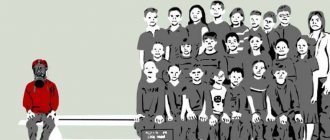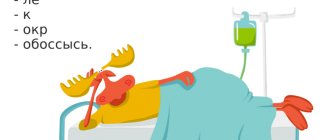It is perhaps difficult to find a person who has never heard the common expression “Freudian slip.” At the same time, not everyone knows what exactly is meant by this concept and where it came from. In fact, it has a very interesting meaning, which many psychologists recommend paying attention to. So what exactly are we talking about?
What is a Freudian slip?
What does this phrase mean? And why do they say Freudian slip? This is a well-known phrase that implies a slip of the tongue that a person uttered unconsciously, for reasons unknown to him. The name of the famous Austrian psychoanalyst Sigmund Freud is mentioned for a reason. Freud is the founder of psychoanalysis and the doctrine of the conscious and unconscious.
The meaning of the expression "Freudian slip"
It is a well-established belief that people lie when they make a Freudian slip. However, such an assumption is far from the truth. Sometimes a person himself does not realize the reason for such a slip of the tongue.
In his early writings, Freud emphasized that the confrontation between the unconscious and human consciousness is the cause of neurotic disorders. In other words, the desire to experience pleasure conflicts with the instinct of self-preservation.
The psychologist published his book “I and It”, in which he identified three components of the human psyche:
- I (Ego) – presupposes the principle of reality;
- It (Id) - represents the unconscious part of the psyche, the unity of subconscious drives;
- Super-I (Super-Ego) - is responsible for the moral and religious attitudes of the individual, rules of behavior and moral prohibitions. Produced during human development. The qualities of the Super-ego are conscience, reflection and the formation of human ideals.
The superego and id are constantly in a state of conflict. This is the reason that a person in identical situations chooses a different line of behavior. For a short time, the It can prevail over the Super-Ego. That is, the unconscious dominates over consciousness. It is at such moments that a person utters a random phrase indicating what he was thinking.
Origin of the catchphrase
Many people are frightened by the prospect of being in an awkward position during a public speech or even when communicating one-on-one. The “father of psychoanalysis,” Sigmund Freud, is partly responsible for these experiences.
The essence of errors in the interpretation of Sigmund Freud
Many of us try to avoid awkward situations, and often feel tense when speaking in public or even in private conversation. The famous “father of psychoanalysis” once decided to explain the nature of this phenomenon. In his work “Psychopathology of Everyday Life,” he notes that any innocent inaccuracy in a spoken phrase conceals something serious behind it - something that is trying to break through from the subconscious, revealing true goals and motives. Gradually, this theory began to gain popularity and even received a definition - a Freudian slip. This term is often used in psychological literature and is well known among all segments of the population.
One of the scientist’s hypotheses has become an axiom in the world of psychology, and now any speech error attracts attention. They look for many hidden meanings in the words of the person who misspoke, provoking uncomfortable situations. Of course, Freud's authoritarianism was the main reason for this state of affairs. His followers developed many ideas, although not all psychologists share these opinions and do not always agree with the meaning of the “Freudian slip.”
As far as we know, the famous psychoanalyst developed his theory after sessions with one young man. He misquoted a certain Latin phrase, missing one word. Freud decided that this happened for a reason, and the patient’s subconscious was the cause of this error. During subsequent conversations, the doctor determined that the guy associates the missing word with blood, which reminds him of the fear he experiences when thinking about his beloved’s pregnancy. The psychoanalyst was convinced that the subconscious was trying to protect the young man from negative experiences by blocking the “undesirable” word.
Examples of Freudian slips and their secret meaning
There are many Freudian slips made by famous people. Let's look at examples of the most “famous” clauses:
- The head of the Communist Party of the Russian Federation, Gennady Zyuganov, said at one of his public speeches: “We are supported by several million rubles.” He was planning to say “people,” but he misspoke and said “rubles,” thereby voicing the thoughts that really bothered him;
- The head of the A Just Russia party, Sergei Mironov, making a speech at a meeting of the State Duma, misspoke, replacing “street art” with “arthritis.” The politician's mistake only caused general merriment. It is worth noting that not all slips of the tongue of Russian deputies are perceived by the public so kindly and loyally;
- During a televised speech, US Senator Ted Kennedy from Massachusetts used the word "breast" instead of "best people." In addition to everything, he instinctively made an unambiguous gesture with his hand, depicting a rounded object. Despite the fact that the senator immediately corrected his speech error, his prestige was shaken;
- the presenter of the Vesti TV channel, Maria Morgun, at one time renamed the State Duma to the State Duma;
- another journalist, broadcasting sports news, mistakenly pronounced the letter “CH” in the title “Grand Slam Tournament”; her colleague, instead of “Chechen captivity,” said “Chechen member”;
- once US Secretary of State Candolizza Rice recklessly called the then-current President George W. Bush her husband.
Concept understanding problems and examples
If we take Freud’s theory, then he still wrote it with a non-therapeutic bias. Consequently, he assumed that the person who came a priori had some kind of problem. Therefore, from his point of view, all parapraxis, and especially reservations, are manifestations of unresolved unconscious conflicts and suppressed desires. That is, initially, thanks to such errors, we could suspect a problem area.
Now psychologists urge us not to understand the theory so globally.
After all, in general, Freudian slips are errors that express things that are important to us.
For example, many mothers, if their child is sick at home, begin to make slips on the topic of illness: instead of “salary” - “cotton wool”, for example. They also constantly make reservations, expressing their inner desire to go home to be near the baby. We are not seeing an underlying problem here, their relationship with their mother was not cold, and they were not “abandoned children.”
These are situational reservations that go away as soon as the pressing problem is resolved.
The same can be noticed after a conflict, for example, with a wife. And half of the office is even starting to respond to the name Zina. And dieters are good at monitoring food-related reservations.
Therefore, currently in colloquial speech, the concept of a “Freudian slip” most likely does not mean the deep, repressed needs that became the causes of neurosis; and those facts that are more significant for a person than the actual process.
At the meeting, instead of “my program,” he said “my frame,” and everyone around remembered that the man was still in the process of renovating his house.
“Freudian slip” - what does it mean?
In short, “Freudian” means viewing slips of the tongue as an inner voice that tries to point out desires and/or fears hidden in the depths of our unconscious.
However, if you look at it, not all reservations are according to Freud! Modern psychology does not deny the theory of the Austrian psychoanalyst about the hidden meanings of unexpected words, but does not fully support it, but emphasizes: many verbal errors are just glitches, a misfire of the mechanism responsible for searching for words.
Linguists adhere to the same version. In particular, the founder of the scientific school of Russian ontolinguistics, Stella Tseitlin. In her work “Lexical clauses: experience of typology”, she presented a number of clauses, divided into types and subtypes according to characteristic features, and explained how and why they arise. Here are some of the most common:
- Errors in expressing thoughts due to poor knowledge of the language. Typically for children, foreigners, illiterate people and those with a poor vocabulary.
- Mixing the sounds of adjacent words, especially in fast speech. Sometimes it turns out to be nonsense, and sometimes even full-fledged phrases with a new meaning: not to pay attention/not to heed the appeal.
- Sloppy speech, characteristic of home communication, that is, when you don’t think about what you’re saying. As a result: you don’t call things by their proper names, and even Fr.
- Inadvertent slips of the tongue. Typical: when you are used to saying “kisses” at the end of a telephone conversation with your family and accidentally say goodbye to a stranger in the same way; when I was thinking about someone during a conversation and accidentally mentioned their name.
- Speech preemption. This is when you have thought about or rehearsed the text in advance, and at the moment of pronouncing it, some words from the end “pop out” earlier.
- Unconscious replacement of the desired concept with antonyms, synonyms or metonymies (for example, “the frying pan is burnt” instead of “scrambled eggs”).
- Etiquette words and concepts from other semantic groups are confused. On autopilot we issue “thank you” instead of “hello”, “apple” instead of “pear”, “microwave” instead of “slow cooker”, etc.
Linguists have classified slips of tongue as another subtype, expressing the voice of the unconscious. So we finally come to the original question: what did Sigmund Freud himself say about reservations? When working with patients, the scientist had no small details. He did not lose sight of even the so-called erroneous actions, which included not only slips of the tongue, but also misreadings, mishearing, forgetting, misplacing objects and cases when a person got lost somewhere.
In his lectures for doctors, Freud advised paying attention to these manifestations, since in some situations (and not in all) they make sense, can reveal the secrets of the unconscious and suggest treatment for mental disorders.
Notice in the previous sentence the emphasis on “in some situations” and “treatment.” What do we have? How often have you heard of slips of the tongue being analyzed by professional psychoanalysts? That’s the same, without a twinge of conscience, amateurs grab onto any slip of the tongue and let’s “iron” the one who dropped it. And the latter begins to blush, make excuses, and develop complexes...
If you find yourself in these circumstances, think about this: If a person who is not knowledgeable about dentistry diagnoses the condition of your teeth and tries to treat them, would you trust him? Here! Therefore, you should not be afraid that, based on some mistake in speech, you will be given a “diagnosis” or will be accused of something.
Speech errors according to Freud as a reflection of hidden desires
There is an opinion that Freudian slips are a public expression of information deeply hidden in the subconscious. Freud believed that most unconscious desires and aspirations are the root causes of mental disorders. And at a moment when a person himself does not realize this, reservations appear.
What is a Freudian slip in simple words? The expression “Freudian slip” means hidden desires that have involuntarily become public. A person cannot always admit even to himself his innermost and secret desires. However, on a subconscious level, these needs are localized and subsequently manifest themselves in the form of typos, slips of the tongue, and slips of the tongue.
The difficulty lies in the fact that it is not always possible to identify the reason for the formation of reservations and interpret them correctly. Of course, with great desire and commitment, all difficulties can be overcome.
Freud created the concept of slips of the tongue. It states that all speech errors can be conditionally differentiated into the following categories:
- clerical errors, misspellings, misspellings, mishearings, slips of the tongue;
- memory disorders in which a person forgets names, words, sensations;
- gestures and facial expressions that go against the words.
If one of the listed violations is detected, it is necessary to look for the cause of its occurrence. According to the scientist, “there is no place for coincidences in life.”
Often these kinds of speech errors are attributed to overwork, depression or emotional overexcitement, with the assurance that they do not contain any hidden subtext.
Meanwhile, Freud had a different point of view. By carefully analyzing unconsciously uttered phrases and expressions, one can discover that a person's actions do indeed have a certain meaning.
In everyday life, situations often occur that confirm the theory of the famous psychoanalyst. The most obvious case is with guests, when instead of the phrase “Well, come more often,” you tell them: “Don’t come more often.” This clearly characterizes your attitude towards these people. Perhaps, consciously or unconsciously, they are unpleasant to you.
What's on a sober person's mind...
One day, my friend, in the midst of a quarrel with his wife, who scolded him for his drinking, shouted out in anger: “Yulia, I love myself!”, but he wanted to say “you.”
An anecdotal story happened to me too. In the second grade, they called me to the blackboard, I wrote a sentence from dictation and missed a letter: “The mowers sang pis(n)yu.” Of course, the teacher noticed this mistake and before my classmates laughed at me, he quickly walked up to the board, covering the last word with himself and asked in a whisper: “Perhaps you need to go to the toilet? You can come out." I nodded, surprised at how he guessed (I didn’t notice the mistake) and quickly jumped out, because I could barely stand it and was embarrassed to ask to go to the toilet. I learned the secret of the guess when my mother picked me up after school - the teacher told her about the typo, which, as it turned out, he correctly deciphered...
The erroneous actions mentioned above, among which the typo and Freudian slip are also known, arise due to a conflict of two intentions:
- something that you consciously intended to do, for example, say “I love you”;
- something that lurks deep in the soul and for some reason has to be suppressed, for example, selfishness.
At a convenient moment (excitement, fatigue, intoxication), when consciousness loses control, your second intention violates the first and breaks out in the form of a word, action or inaction that is unexpected for you. The scientist even formulated possible reasons for this failure:
- Desires, including intimate ones, that a person does not even allow himself to think about. How can you not think about the red monkey?! Whether you like it or not, you blurt out somewhere: “You can’t spoil Masha with a castle.”
- A desire that you want to deny yourself so much that things or people associated with it are lost or forgotten, even you yourself can get lost in an unfamiliar location.
- Reluctance to perceive reality, the real state of affairs, conditions, situations.
- Reluctance to do/have something or wanting something opposite, be it an object, a relationship or a service. As an example: every time he goes out for an interview, an insecure specialist does not open, but closes the lock on the door of the house.
- Fears, including those related to death, that you don’t want to face.
- Unpleasant memories or associations (not directly related to the forgotten or lost person/place/object).
- A feeling of guilt, conscious and unconscious, that does not go away without self-punishment or punishment from an outsider.
- Repressed trauma, attraction or feeling, including aggression, envy, desire for competition, etc.
What is most difficult about Freud's interpretation of erroneous actions is that you need to be Freud himself to get to the bottom of the true cry of the soul.
Freudian slips in men and women: examples and their interpretation
The most “popular” slip according to Freud among both men and women is the situation in which they call their lover by the name of their previous partner. In most cases, such incidents are due to the fact that the person has not yet completely forgotten his past relationship.
Probably, this is exactly the explanation for such an incident that the “father of psychoanalysis” found.
What to do to make fewer reservations
So what? To be a mentally healthy person without complexes, phobias, traumas and unpleasant memories, to realize your desires, not to be shy to express yourself and protest... That's all!
What do you say, this is not up to you? Then, at the very least, you need to stop being afraid of making a mistake! Firstly, the more you fear, worry, stress and stress yourself out, the higher the likelihood of making a mistaken action. Every time you feel nervous about this, remember what we said above: slips of the tongue happen to everyone several times a day - this is normal, many are “mechanical” failures, and not secrets of the subconscious, and not everyone is capable of correctly decipher reservations and other erroneous actions. Moreover: the interpreter’s interpretation can also be interpreted (forgive the tautology) by nodding, saying, “a thief’s hat is on fire.” That is, in an unprofessional interpretation, the hidden problems of the decipherer may come to the fore, and not of the one whose verbal blunder he undertook to analyze. Anyone who has pain is the one who talks about it.
And one more hint. Scientists have experimentally determined when slips of the tongue become more frequent. These, as we have already said, are states of disconnection or weakening of language control: excitement, haste, combining several tasks, fatigue, intoxication, illness, recently experienced stress or being in a stressful situation, expression and lies. Minimize their influence, try to improve your mental state and still listen to your inner voice more often!
Reference
Sigmund Freud coined the term “parapraxis”. When figuring out what a Freudian error means, you need to take into account that it was originally called that way. Freud found out that even minor slips, slips or errors are not accidents - through them an unconscious desire is manifested.
If a person produces a word, it means it appeared in his mind. And the choice of this particular word among billions of others confirms the presence of thought in this direction, a repressed desire.
Criticism of the theory
However, like many other ideas of Freud, the concept of the manifestation of the unconscious through accidents in human behavior creates a huge field for various kinds of fantasies and speculation. In almost any human mistake you can find a secret Freudian meaning and interpret it in your own way, in your own interests. In many ways, the scientist is known even to those who have never discovered any of his work in life, because of such ideas, which make it possible to use them to their advantage in the most ordinary situations.
Of course, before asserting that this person, of course, made a slip “according to Freud,” it is worth thinking carefully - do we have the right to draw such conclusions about a person without being able to study his unconscious? It is not always necessary to complicate the situation to such an extent, because in most cases, reservations are just reservations, and there is nothing terrible behind them. While it is certainly difficult to deny Freud's contribution to the development of modern psychology, it is hardly wise to put all of his ideas into practice.
Problems of interpretation
Like many of Freud's theories, his work with reservations has some nuances in interpretation. If a young man makes a reservation related to the intimate sphere, is it worth stating unequivocally that the reason for this lies solely in sexual desires repressed in childhood. Perhaps a very sexy girl just passed nearby.
There is another well-known example of a slip of the tongue by journalist Jim Naughty, who on live television replaced the first letter of the surname of the Minister of Culture Hunt with “k”, thus obtaining an English curse. Apologizing, Jim said that the slip did not mean his relationship to the minister or his assessment of his affairs, but was connected with the prolongation and transfer of the letter “k” from the word “culture” before the surname Hunt.
Errors
Human errors are inevitable. Basically, there are 1-2 errors per 1000 words. Every day a person makes approximately 7-20 reservations. Slips of the tongue are a very curious and useful phenomenon, which serves as proof that a person has an exceptional ability to control his own language. He connects sounds into three chains, including lexical, phonological, and semantic. As a result, a slip of the tongue occurs. But even with it, the speech reproduction system does not stop working, and new words are used. Communication continues further. This is a demonstration of the superior capabilities of the human brain.
Why did Freud need Thanatos and how does it explain the death drive?
In his next important theoretical work, the book Beyond the Pleasure Principle (1920), Freud had to revise some of the provisions of his theory.
The need to reform the theory arose in connection with the consequences of the First World War. The war neuroses that arose in combat veterans could not be explained through disturbances in the organization of libido, which were used to explain ordinary neuroses.
Freud's thoughts received a new stimulus when he saw a one-and-a-half-year-old child playing: he was throwing a reel tied to his hand by a thread. When the coil disappeared from the child’s field of vision, he shouted: “There!”, and pulling the coil towards himself, he stated: “Here.” Freud saw in this game a training in the general ability to be deprived and get used to the absence of an object, and in the reel - a symbol of treasure, from the mother to one’s own life.
Using this analogy, Freud explained the origin of war neuroses in people returning from the First World War: in his opinion, their ability to experience pain was not sufficiently trained. These people were not mentally prepared for the horrors they endured and for death in war.
In the same theory, Freud adds one more to the list of drives - the drive for peace. Freud associated it with the death drive, or Thanatos. Like libido (or Eros), Thanatos can be directed inward or outward—it is nirvana and aggression, respectively. Self-directed Thanatos is inextricably linked with self-directed Eros (or self-love), and outward-directed Thanatos is associated with outward-directed Eros (love of an external object). In fact, the doctrine of Thanatos became a continuation of the idea of narcissism, by which Freud understood self-love (the work of the libido directed towards the Self-object).
The idea of narcissism generally comes into contact with the most important philosophical teachings; it is not for nothing that Freud also uses the expression “principle of nirvana” with a reference to Buddhism for it. A very important skill for a person throughout his adult life is to have a positive attitude towards existence, to appreciate it in itself. Unfortunately, very often a person acquires this skill only in adulthood, when there is little existence left, and sometimes he does not acquire it at all.
Aphasia as an explanation
In addition to psychological explanations for errors in speech and writing, doctors identify a speech disorder caused by damage to parts of the brain - aphasia. A distinctive feature is a person’s ability to perform other cognitive functions.
For example, a person who has suffered a stroke or has progressive Alzheimer's disease wants to say some words, but in reality says others.
All people sometimes make mistakes and make “Freudian typos.” This may be due to stress, fatigue or simple inattention. And also the reasons may be hidden deep in our psyche. Remembering the theory of the father of psychoanalysis, ask yourself from time to time the question: “What if I mistyped for a reason? What is my subconscious trying to tell me?
Research
The question, Freudian error - what does it mean, has been asked by many scientists. Their experiments subsequently confirmed the correctness of Freud's work. In one study, a sexually attractive girl was selected as an assistant for a group of young men. The subjects were given lists of words and were asked to say them out loud from time to time.
In the office where the assistant was a girl, there were an order of magnitude more sexually charged remarks than in the room with the elderly professor. This clearly shows that on an unconscious level, men were thinking about sex, trying to repress these thoughts. The reservations were unconscious, but the men felt their excitement, which could not help but be betrayed. After the experiment, some of them invited her on a date.











